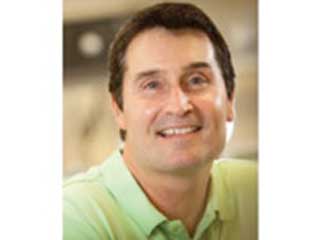Epigenetics & Wellness – Lifestyle Choices and Human Health
We are now coming to appreciate the notion that both nature (genetics) and nurture (epigenetics) play key roles in disease progression and the development of chronic pain states. Recent advances in the fields of genomics and bioinformatics are providing strong evidence of the fact that changes in our genetic code (mutations) alone cannot explain how the genome regulates the development and function of complex multicellular organisms. Rather, epigenetic changes that involve controlling how our DNA is packaged and, thus determining which genes are turned on or off, allows for adaptive evolution and a new way to view human health and disease. Hence, while we might have a genetic predisposition towards a particular disease, our lifestyle choices involving diet, sleep, exercise, and our environment play an important role in maintaining and restoring a healthy physiology. Dr. Paul Durham will provide a comprehensive view of how lifestyle choices and environment impact disease progression and our overall well-being, and present strategies to help your patients maintain a healthy epigenome.
Objectives:
1. Know the difference between one’s genome and epigenome and the relevance to understanding human health and disease progression.
2. Appreciate the dynamic nature of our epigenome which allows for adaptive evolution and the ability to prevent expression of genes that predispose one to a particular disease.
3. Understand the importance of a patient’s environment and life style choices with regard to sleep, exercise, and diet in the development of chronic orofacial pain conditions.
4. Gain new insights into the pathology of orofacial pain conditions and new treatment strategies to help modulate sensitization of the trigeminal system and minimize risk factors.
For this entire video and other presentations from the AAOP

Paul L. Durham, PhD, is Distinguished Professor of Cell Biology at Missouri State University and Director of its Center for Biomedical and Life Sciences, a multidisciplinary laboratory utilizing cellular/molecular, microbiological, biochemical, and chemical techniques. A major focus of his research has been to elucidate the cellular/molecular mechanisms by which novel drugs and nutraceuticals modulate the excitability state of neurons and glial cells under pathological conditions. More recently, his laboratory has been investigating epigenetic changes in response to changes in diet, sleep pattern, early life stress, and chronic inflammation. Another focus has been on understanding the mechanism of action by which non-invasive vagus nerve stimulation modulates the excitability state of neurons and glia in episodic and chronic models of migraine and TMD. A frequently invited guest lecturer and the author of > 80 peer-reviewed research articles and > 130 published abstracts. Dr. Durham has served on numerous NIH study sections and pharmaceutical company advisory boards and is currently a reviewer for more than 10 journals. Dr. Durham is a member of the Society for Neuroscience, American Headache Society, American Pain Society, and American Academy of Orofacial Pain.


